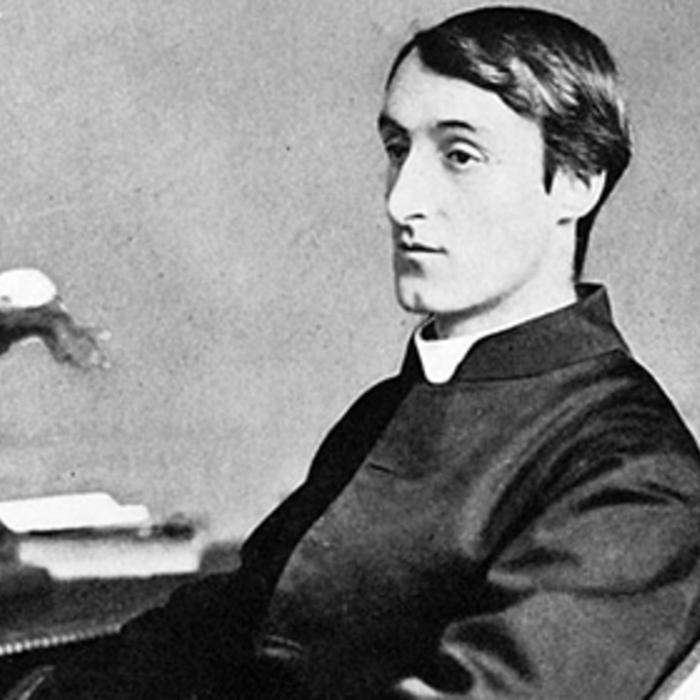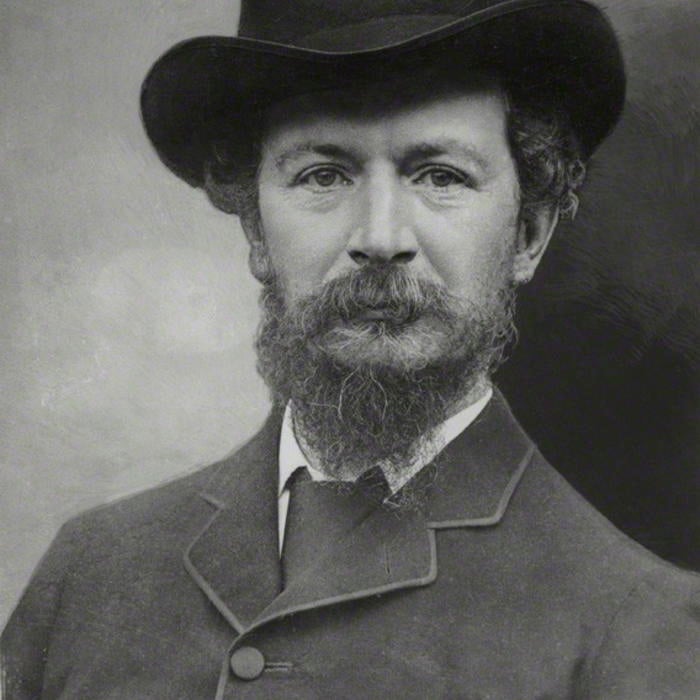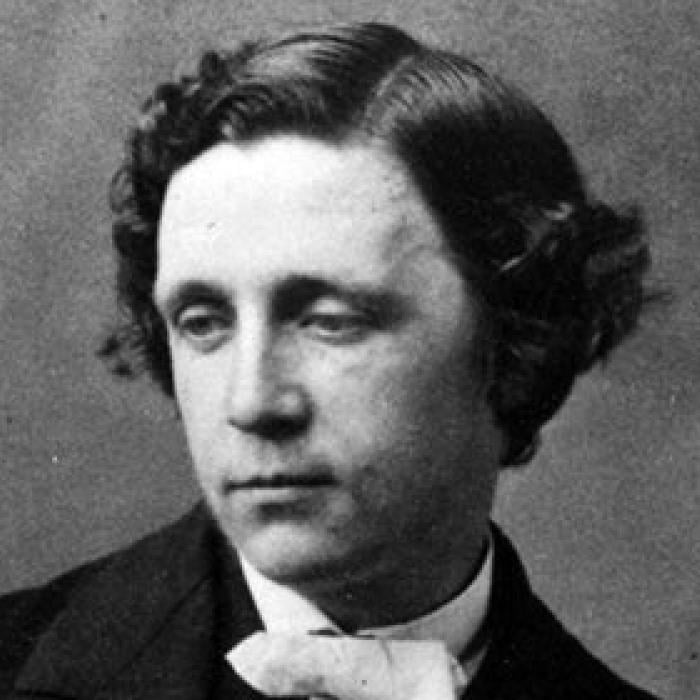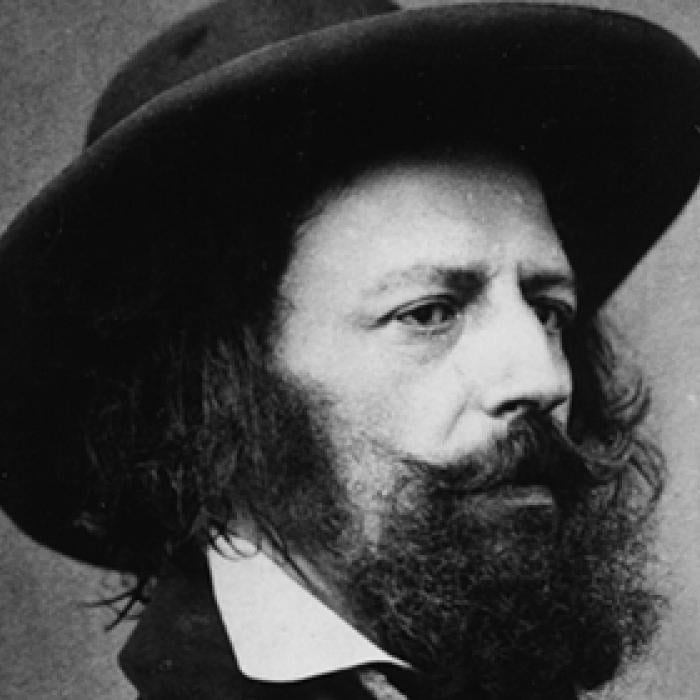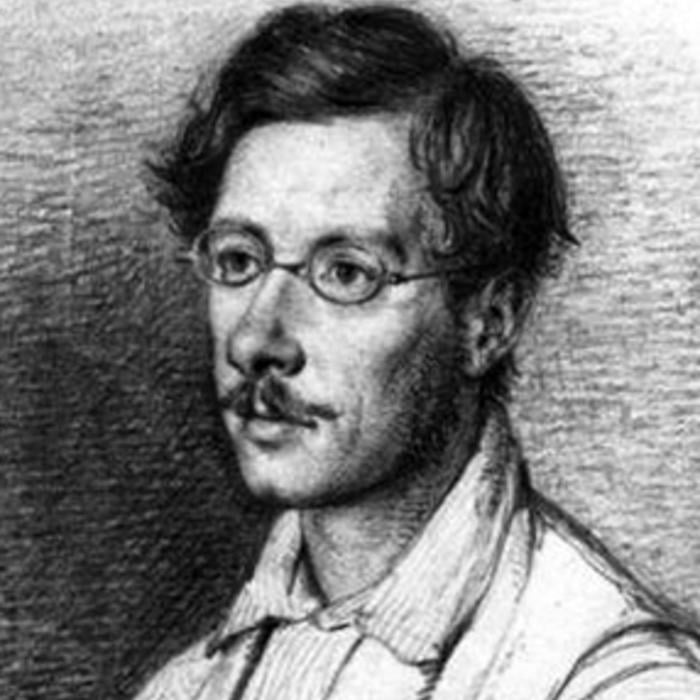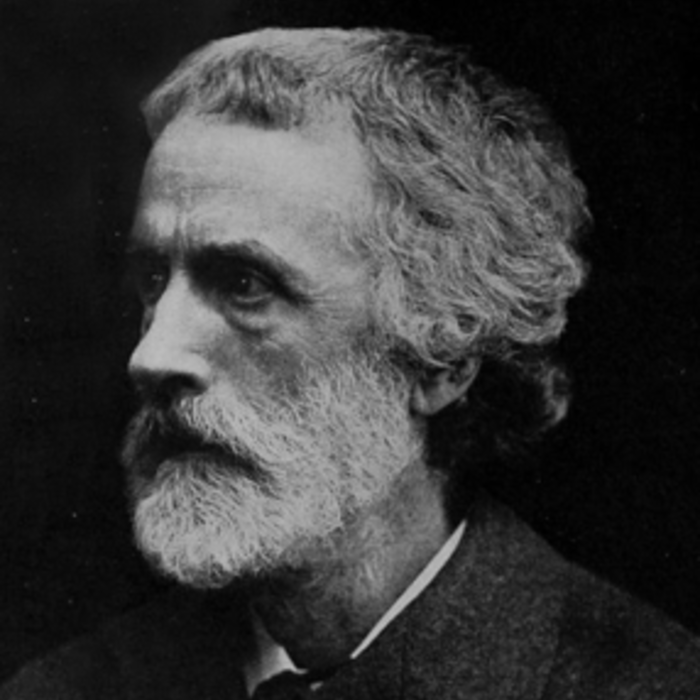Robert Bridges
Robert Seymour Bridges was born on October 23, 1844, in Walmer, Kent, England. He enrolled in Eton College in 1854 and started writing poetry. In 1863, he enrolled at Corpus Christi College at Oxford University, where he met Gerard Manley Hopkins, who he would remain friends with until Hopkins’s death in 1889. Bridges would also become Hopkins’s literary executor, collecting and editing his friend’s poems for publication after his death.
In 1869, Bridges registered as a student at St. Bartholomew’s Hospital in London. After he initially failed his medical exams in 1873, Bridges spent part of his summer studying medicine in Dublin. That same year, he published his first book of poems, Poems (Pickering, 1873), and he received his MB the following year. Bridges continued working at St. Bartholomew’s and other hospitals until 1881, when he retired after contracting a case of pneumonia. He spent the rest of his life in nearly unbroken domestic seclusion, devoting himself to the writing and studying of poetry.
During his prolific period of domestic seclusion, Bridges published several long poems, dramas, and poetry collections, some of which contained his experiments using a meter based on syllables rather than accents. Many of his most popular verses are collected in The Shorter Poems of Robert Bridges (George Bell & Sons, 1890).
In 1913, Bridges was named poet laureate of England, a position he held until his death. He also helped found the Society for Pure English, an organization of literary figures and linguistic scholars who sought to preserve the “purity” of the English language. Bridges remained a bestselling poet throughout the 1920s.
Bridges died in his home in Boars Hill, England, on April 21, 1930.

